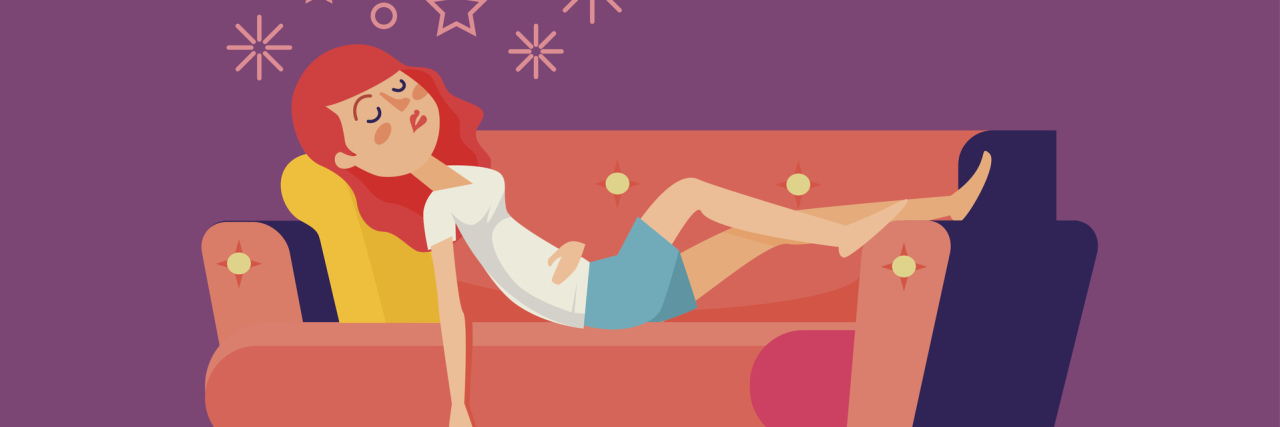You go to bed at a decent time each night. You wake up after getting eight or more hours of sleep, yet you feel like you only received two hours. The day begins with you dragging yourself out of bed with the addition of pain and muscle cramping. There is a list which seems like a mile long of things you had planned to accomplish today. The more you look at it, the longer that list seems to get. What is frustrating is that this to-do list is full of simple tasks and chores that don’t require much effort. However, for a person struggling with chronic illness, these “simple tasks” make you feel like you’ve worked an eight-hour shift once complete.
- What is Fibromyalgia?
- What Are Common Fibromyalgia Symptoms?
Your first enormous challenge: Attempt to shower. Yep, the dreaded shower.
Let’s pretend this individual, by the name of Bob, has fibromyalgia. He wakes with pain each morning, and also experiences temperature sensitivity and heightened nerve responses. Getting in the shower and washing up takes an extreme amount of exertion. Bob also experiences allodynia – in which the water itself causes him to experience pain when it should not hurt him. While most people find a shower calming and relaxing, Mr. Bob sees it as a torture chamber.
He makes it out of the shower completely exhausted, so he sits down and rests for a short time before hitting his next scheduled task. He grabs his list, and sees he has to get groceries today. It’s supposed to be a cooler day, and since he keeps his house in the upper 70s, the sudden exposure to colder temperatures can cause his body to work overtime just to heat itself back up…which means less energy to drive and time to get groceries. He grabs a thick jacket and heads to the store to get this chore over with so he can return home to rest up for the next task.
These are but a couple of examples regarding decisions that many people with chronic illness are required to make each day. Oftentimes, the shower is skipped for three or four days, and then completed only when it absolutely needs to be done. Getting groceries, depending on the pain level of the individual, is postponed for the next day. Driving is often avoided if possible. Some people may experiences dizziness and extreme migraines that may cause them to not only be a danger to themselves, but to others on the road.
While others only have to make a few decisions throughout their day, such as when to get up in the morning or what to wear for the day, those with chronic illness have to make decisions based off how their body feels and what they can or cannot do. I personally can relate to the shower. I do not experience pain while bathing, but I am utterly wiped out after spending as little as 10 minutes in there. It becomes even more challenging if I am on a time schedule for that day.
Oftentimes, we warriors overexert our body’s daily capabilities just to appease others, or because we are given little choice but to do so. This can have a disastrous effect on us for future days to follow. In order to avoid putting our bodies through overexertion, it is imperative we learn how to say “no” and to do our best to have those we care about understand our situation to the best of their ability.
More times than not, a member of your social group may either not understand or simply choose to not accept your circumstances. You might be ostracized, talked bad about or just plain ignored because you are unable to do certain things you used to be able to do in the past with these individuals. You have to ask yourself if it’s worth getting upset over and putting your body under an unnecessary amount of stress. Sometimes, friends will be lost, but keep in mind whether you’d really want to have “friends” that abandon you and refuse to accept you situation.
Bottom line: it’s not worth it. Stay close to those who give you support and lift you up on days when you feel you’re at rock bottom. I consider even the smallest task completed a victory when I’m having an off day. Something I was able to do myself that will help me the following day. It doesn’t matter if the task is as small as getting out of bed in the morning. You did it using your own strength and determination which lead to getting other objectives completed for that day. Even if the only thing you were able to do was to sit up in bed and read a few chapters out of a book, you did something and your brain got a workout by concentrating on the story. Give yourself credit where credit is deserved instead of putting yourself down for things you were unable to complete that day.
This post originally appeared on Amanda’s blog.
We want to hear your story. Become a Mighty contributor here.
Thinkstock photo via PrettyVectors.

